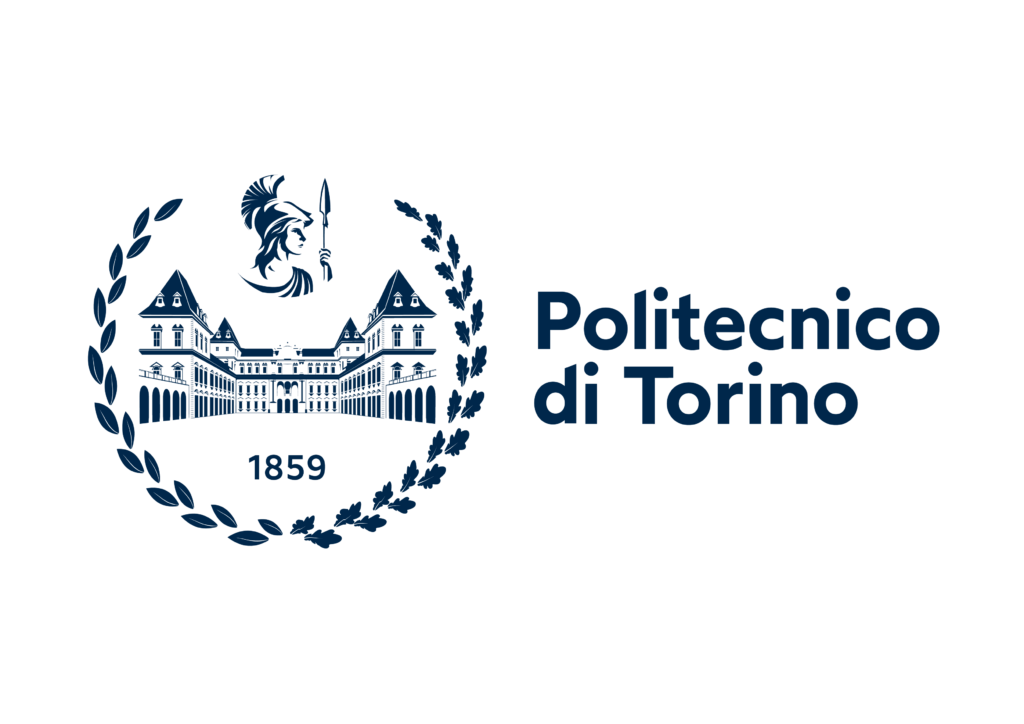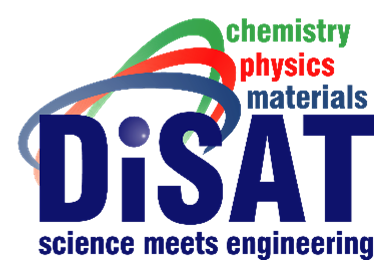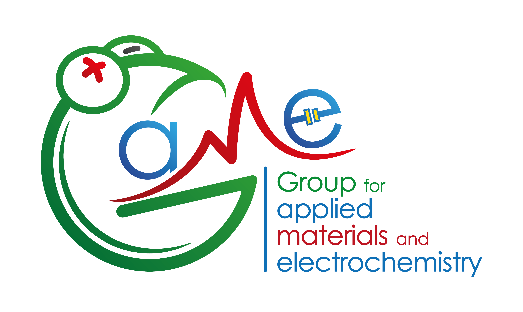Polytechnic University of Turin
The Politecnico di Torino (POLITO), founded in 1906 from the roots of the Technical School for Engineers created in 1859, has a long-standing tradition of leadership of polytechnic culture. It is among the top Engineering and Technology universities in the World, the 45th according to the QS University Rankings 2023 by broad subject area. POLITO gathers more than 38000 students and 1150 researchers/professors (spread on 60 BSc/MSc courses), and holds 100 active start-ups and spin-offs.
DISAT (the Department of Applied Science and Technology) is one of the major departments within POLITO, with a staff counting on more than 150 faculties, 200 research assistants, and 60 technical and administrative collaborators. DISAT focuses on research and education on the fundamental principles of matter and energy, their transformation and related engineering applications. Within DISAT there are 13 Research Groups, expert in a wide and complementary range of disciplines (such as physics of condensed matter and fundamental interactions, nanotechnology, chemistry, materials science, metallurgy, biotechnology, food engineering), whose activities span from the conception of new processes to the development of new reactors and processes, from the optimisation of control strategies and devices to the design of pilot and industrial-scale plants.
The GAME Lab research activity is mainly focused on analysing all the aspects related to innovative electrochemical systems for energy storage, which are fundamental to fully exploiting the potential of new technologies, such as smart electronics, energy generation from renewable sources and electric transport. The interests and skills of the GAME Lab concern the development of new materials (nanostructured electrodes and advanced polymeric/composite electrolytes) and innovative technologies for highly performant, safe, lightweight, low-cost, sustainable and environmental-friendly devices, such as lithium and sodium batteries, new zinc-ion and zinc-air batteries, lithium-sulfur batteries and supercapacitors, as well as new generations of photovoltaic and photoelectrochromic devices and materials for the reversible capture and storage of CO2. The GAME Lab is part of GISEL, the Italian group for electrochemical energy storage, which coordinates all major Italian research and development stakeholders in the field (Universities, Research Centers and Companies) to unitedly and positively face the global challenges about energy storage.
SCIENTIFIC TEAM
Claudio GERBALDI (Principal Investigator)

Prof. Claudio Gerbaldi, PhD in Material Science and Technology, is Full Professor of Chemistry for Applied Technologies at DISAT – Politecnico di Torino. He is the leader of the Group for Applied Materials and Electrochemistry (GAME-Lab), having strong collaboration with academy/research centers worldwide and effective connections with industry and EU (H2020, HORIZON EUROPE, Marie Curie ITN projects). He has a > 20-years’ experience on innovative technologies for electrochemical energy storage (mainly, Li-based and post-Li secondary batteries) and conversion devices with a specific focus on the development of advanced solid-state electrolytes by green, solvent-free procedures, as well as bio-inspired nanostructured electrode materials, their assembly in lab-scale cells and thorough electrochemical characterization. He is Author/co-Author of >170 scientific research articles with > 10k total citations, h-index 66, about 150 conference communications (>20 invited/keynote), and 5 international patents. He is former Chair of the INSTM National Reference Center for Electrochemical Energy Storage (GISEL) and member of the governing board of the Electrochemistry division of the Italian Chemical Society. Among others, he has received the Piontelli Award for outstanding results in Electrochemistry from the President of the Italian Republic (2015) and the ‘‘UniCredit Award’’ for the Young Innovation in Research (2007).
Giuseppe A. ELIA

Dr. Giuseppe A. Elia is currently Assistant Professor at DISAT – Politecnico di Torino. He received his PhD degree from the « Sapienza » University of Rome. Following, he worked as a research scientist in highly qualified research centres (e.g., TUB, HIU and WMG). Moreover, he spent several periods as a visiting scientist at Hanyang University, MEET, Argonne National Laboratory. He worked as a scientist in many projects related to developing advanced Li-ion and Li-air batteries and beyond Li-ion systems. Over the years, he focused his activity on various research topics in the field of physical chemistry, materials science, electrochemistry and its applications, with particular reference to the preparation, study and morphological-structural characterization and electrochemistry of nanostructured electrode materials and innovative electrolytes for storage, production and conversion systems. In addition, he has carried out an intensive research activity focused on studying and developing alternative systems to Li-ion batteries that use elements characterized by a high abundance in the earth’s crust, such as sodium, calcium, zinc, and aluminium. He is the author/co-author of over 50 peer-reviewed articles, and author of 3 book chapters and 3 patents.
Alessandro PIOVANO

Dr. Alessandro Piovano is currently Researcher at DISAT – Politecnico di Torino. He received his PhD degree in Chemical and Materials Sciences in 2017 from the University of Torino, where he focused on the physicochemical characterization of catalytic processes for polyolefin production and transformation. During his research activity he spent some months as internship at Utrecht University and he took part to many experiments at large scale facilities, as synchrotrons and neutron sources. After moving to POLITO, his main research topic is devoted to the development and characterization of innovative ion-conductor materials to be used as electrolytes for Li-ion and Na-ion batteries, including ionic liquids, polymers (with particular focus to recycled polymers from different sectors), MOFs and ceramics. Overall, he is author/co-author of over 40 peer-reviewed articles. As teacher, he is holding the courses of Organic Chemistry for Engineering at POLITO and of Catalysis at the University of Montpellier.
Rijul BAJAJ (DC07)





